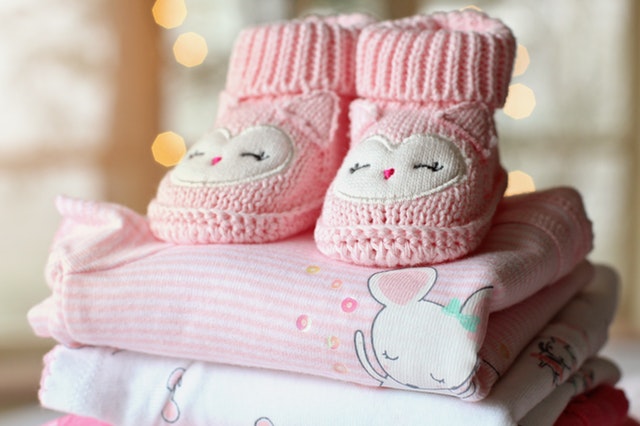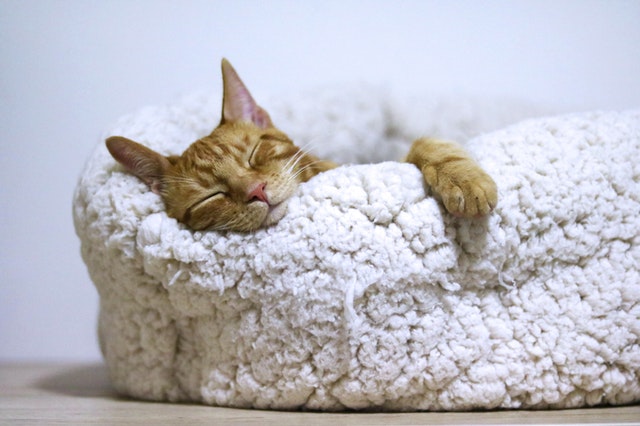What to do when a child refuses warm clothes

Q. I am stuck on an issue with my almost 4 yr. old son. He has been insisting on wearing shorts and t-shirts for the last few months no matter what the weather. When this came up, refusing coats/long sleeves/pants, I went with it, allowing him choice in clothing. I thought, when he gets really cold, he’ll put on more clothes. He didn’t. I compromised and allowed him to wear leg warmers, long socks, etc. It got colder and colder and he wasn’t adjusting at all. Finally, I insisted that he wear pants and a coat when necessary (during an evening out he became so cold, was shivering, and claiming he wasn’t cold and temps were in the 30’s). He has fought it completely. He doesn’t want to leave the house because it means putting clothes on. He willget dressed but its only if I practically force him to. I have held firm though, as this has been our most recent decision on how to handle this. It’s not getting easier. I considered it could be a sensory issue but I don’t think it is based in what he tells me and how he acts when he’s dressed. He will pull his pant legs up and want them rolled up like shorts, however, he’ll wear leg warmers and any kind of material of pant. I thought he might be trying to control this part of his life because recently we cut all screen time and he had no choice in the matter.
A. Well you certainly have explored the route that I would initially suggest—taking his lead, letting him get cold, and then ask for warmer clothes. Is it possible his self-regulatory system that adjusts for cold and hot is not working properly? Do check this out with a medical doctor and an OT to determine a sensory integration issue one way or the other. He is probably one of these kids who hates having clothes on. Does he prefer running naked in the house? Clothes may just feel cumbersome to him. As he gets older, he will be able to verbalize what the issue is.
I would suggest what I call pulling your parent authority card (not unlike what you have been doing). Acknowledge and validate his wishes to have shorts or whatever while at the same time making sure he is warm enough. “You really hate having these pants on and get very angry when I insist that you wear them. If you could have your wish, what would you wear all the time?” Play this game with him and expand on it however you can. Then, “Because you’re 3, I don’t expect you to know how to keep yourself warm enough to stay healthy. You just want to wear what you want and that is absolutely fine. That’s why you have a mommy. It’s my job to make sure you’re safe and healthy. So I am the one who has to decide what you wear outside when I think you won’t be warm enough—only until you are old enough to know for yourself. Until then, you have to put up with a mommy who tells you some things you don’t like because that’s my job.”
I think this will probably help you more than him. But this is your job and as long as you own it and make it clear to him that you don’t expect him to think differently, things may get a little better. Right now he doesn’t see the importance of dressing warmly and apparently doesn’t feel the cold until he’s freezing — hopefully he will soon.

The problem comes when he continues to fight you and you get into a power struggle. Anticipate that, “Even though it’s my job, you may still not want to wear what I want you to wear. When that happens, what do you think we can do about it?” “I want you to be warm enough. You want to wear shorts and that’s not okay with me. What do you think we can do about it? Problem solving with him will help him feel included instead of “done to”. If he can use his thinking and imagination you will be more likely to come up with a strategy that he agrees to. Note: Don’t expect that just because he agreed at one time, he will agree when it’s time to go out!
Getting Out of Night Diapers
Q. My daughter is nearly 9 and still needs diapers at night. She is fine during the day and otherwise healthy and happy. We take her to the bathroom once during the night, but she is still wet in the morning. She really isn’t aware of it so I’m not apportioning blame or trying to get her to address it as I think the issue is she just sleeps so heavily she doesn’t wake up. My other two younger children just wake up for pees. We have spoken about peeing just before bed, we leave lights on, so she isn’t scared to go to the bathroom. When we talk she is sensible and understands what she must do, but she just doesn’t wake up. Now and then she is dry which gives me some hope things are gradually getting better. She isn’t as wet as she used to be so perhaps her body is gradually storing her pee through the night.
A. As long as you are sure there is no medical issue involved then I think it is important that you involve her in solving the problem—meaning engaging her in a way she can take some responsibility. Getting her up at night to pee does not help her learn to hold her pee. Right now you are taking full responsibility for her situation so she doesn’t have to — I hope you get my meaning on that. It has nothing to do with blame and all to do with allowing her to be responsible.

First you need her buy in – does she want this to stop, does she miss out on sleep-overs, does she wish she were dry in the morning? Sometimes that kind of motivation is what is needed. She needs to want the change to happen before it will.
The next thing is to stop putting a diaper on her — discussing this all with her, of course. Even if she needs it, she must wish she didn’t use a diaper or pull-up anymore. She knows even in her sleep that she has the convenience of a diaper. The sooner you stop giving her that the better. She has grown dependent on it. Let her know that you are working on a new strategy that you want her help with. Together create a chart of days for two weeks at a time. You could use a regular calendar, but it must be specifically for this. It gives her more buy in if she helps make the calendar. Buy some stickers that she picks out. She will have one sticker for the mornings she wakes up wet and another (her favorite) when she wakes up dry.
You must stay out of it during the night. Get a rubber sheet for her mattress. Put a little mattress or sleeping bag next to her bed with a pair of clean pajamas so when she wakes up in a wet bed she can change and go back to sleep dry – if she wakes up at all. She will probably need to wake up in wetness (what the diaper prevents) before she will get it – unconsciously. You simply change her sheets when they are wet and be with her when she puts the sticker on her chart. The point of the chart is to help her know that she can do it and visually see any change. The occasional dry nights should increase. Do this for as many weeks as necessary. This is not a typical sticker chart that parents use to control the child’s behavior. Charts only work when the child is invested in changing a habit. And unless there is a medical issue, that is all it is — a habit. The diaper and you getting her up only support that habit.
Follow-up: Peeing has stopped. Not one wet night since we took off diapers last Friday. Amazing. A bit of a breakthrough here.
Handling peer pressure with social media, vaping, and stress

Q. A few months ago, I discovered that my 13 year old daughter had started vaping. This lasted 1 week. When we found out, she gave us the vape (she had it lying next to her on her pillow one day when I came home, seemed like she wanted me to see it…) I took it, we had a discussion with her about it. She cried for awhile as she said she was using it to let out stress – final exams (end of year). I believe I added stress to her during this period because I was constantly on her to go study as I knew/felt she wasn’t studying properly to prepare herself for her exams. During this time, she also posted pics/video of her vaping on VISCO (a social media app). Lately, she’s also posted inappropriate pics of herself, in a bikini, in a long shirt with nothing else visibly underneath. I have asked her to remove pics (VISCO was attached to her Instagram). She unassociated VISCO to Instagram but pics are still up on VISCO. I will ask her again to remove pics permanently.
A. I have told her that if I see inappropriate pics, I will confiscate her phone (but not permanently). My daughter is very addicted to her phone. It is the first thing she picks up in the morning when she wakes up and the last thing she puts down before going to bed. Our family rule is that all electronics stay in the kitchen at night (for everyone).
Today, I will ask her to remove pics and withhold her phone for the day. I’m not sure that this is the appropriate course of action. I feel she is lacking attention from us, she has told me that she hates me and her father. Obviously, she is angry and I understand this. I am partly to blame as I am a constant screamer and I often put my daughter down. My husband is the disconnected type so obviously there is work for both of us to be done.

Your daughter is not the only teenager who picks up their phone first thing in the morning till last thing before sleep. This is the sign of our times, I’m afraid. We have brought these devices into our lives and now must learn to deal with them. It’s a new world that we don’t know how to maneuver yet. Our modeling and our values are all we have going for us against this tidal wave. Modeling is hard because most of us are the same on our devices. So we must pay vigilant attention to our own behavior. And our values must not be crammed down our children’s throats but lived so our children can watch them play out. You have a good rule about devices staying in the kitchen at night. It is not healthy for them to be near our heads while we sleep.
The fact that she left her vaping device in plain sight, allowed you to take it, and cried about her use of it and the stress she was under, shows you that she has a good conscience and wants your help. I hope your conversation implied that and not just a lecture on the dangers of vaping. This was a wonderful thing that she gave it up and talked about her stress.
Your job with the pictures is not to punish the posting of them but to find out why she sees the need to post. Just as she expressed stress over final exams, posting inappropriate pictures is a signal of the pressure she feels. By demanding what you want or taking away her phone, you add more pressure to her life, remind her that she is misunderstood, and that her mother is not someone she can confide in. I suggest telling her that you threatened to confiscate her phone because you are scared. Explain your fear about where these pictures could go and the harm they could do and your concern that she doesn’t fully understand the ramifications of posting suggestive pictures.
It is your fear, concern, worry (your problem) that drove your threat, so own it and don’t make it her fault. Once you approach it this way, you can say, “Can we please make an agreement that you will take these pictures down?” If she doesn’t agree, you have more connecting work to do. Once you feel connected, then talk about why she feels the need to post them. You might ask her if she is feeling pressured by other friends, etc. Is she afraid she will be left out if she doesn’t?
At 13, you are just launching into the tough years when you need to make sure you are there for her and that she trusts that. A teen feeling connected to parents is the #1 preventive measure against anything you fear for her. If you continue to be “a constant screamer” and put her down with your comments, you will lose this much needed connection. If you are unable to get to the bottom of your reactiveness, it will get worse through these upcoming years. Your biggest job right now is to take responsibility for your reactions with her — let her know you see this and are working on it — and then do the work. Nothing is more important in order to handle situations without threats and punishments, which only add to her stress and separation from you. She will then begin to look to her peers for advice and influence.
To submit a question, email me at bh@bonnieharris.com with your short question and I will answer you within a few days. It may appear in the newsletter at a later date.
 The When Your Kids Push Your Buttons Audio Course
The When Your Kids Push Your Buttons Audio Course
Have you ever asked yourself, “Why did I DO that??”
Wish you knew what else to do?
Learn to:
- Understand your reactions and gain control of them
- Interpret your child’s behavior
- Set appropriate expectations
- Defuse your buttons
Related Articles:
June ’18 Q&A – Refusing the Toilet, Unrealistic Expectations and Huge Feelings







